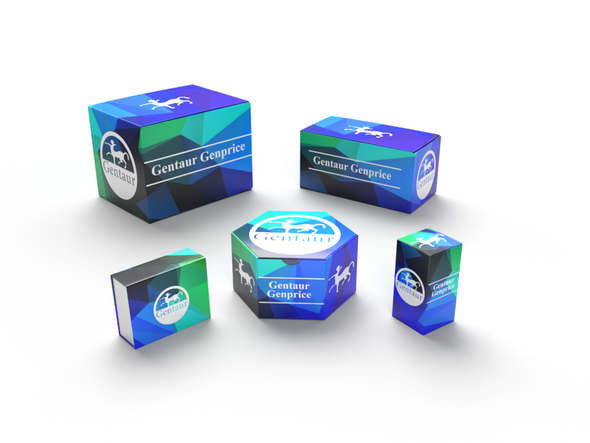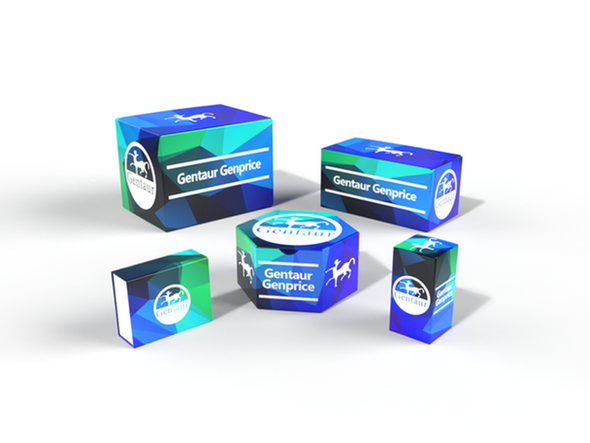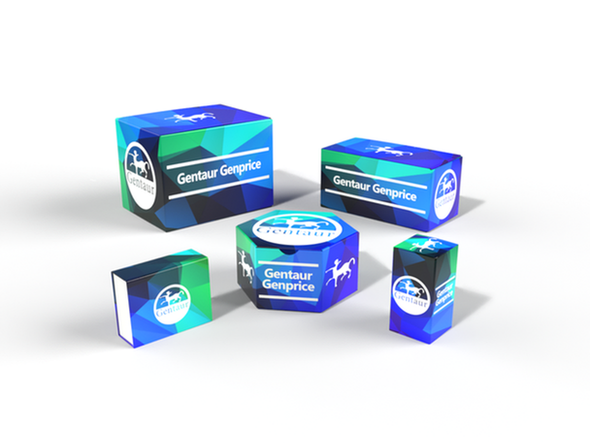740
Pig C-reactive protein (CRP) ELISA Kit | AE58996PI
- SKU:
- 740-AE58996PI
- Availability:
- Usually ships in 5 working days
Description
Pig C-reactive protein (CRP) ELISA Kit | AE58996PI | Gentaur UK, US & Europe Distribution
Species Reactivity: Pig (Sus scrofa; Porcine)
Abbreviation: CRP
Alternative Name: MGC149895; MGC88244; PTX1;
Application: ELISA
Range: 0.781-50 ng/mL
Sensitivity: 0.31 ng/mL
Intra-Assay: ≤6.8%
Inter-Assay: ≤10.2%
Recovery: 1, 04
Sample Type: Serum, Plasma, Other biological fluids
Detection Method: Sandwich
Analysis Method : Quantitive
Test Principale: This assay employs a two-site sandwich ELISA to quantitate CRP in samples. An antibody specific for CRP has been pre-coated onto a microplate. Standards and samples are pipetted into the wells and anyCRP present is bound by the immobilized antibody. After removing any unbound substances, a biotin-conjugated antibody specific for CRP is added to the wells. After washing, Streptavidin conjugated Horseradish Peroxidase (HRP) is added to the wells. Following a wash to remove any unbound avidin-enzyme reagent, a substrate solution is added to the wells and color develops in proportion to the amount of CRP bound in the initial step. The color development is stopped and the intensity of the color is measured.
Product Overview: C-reactive protein is a liver-derived pattern recognition molecule that is increased in inflammatory states. It rapidly increases within hours after tissue injury, and it is suggested that it is part of the innate immune system and contributes to host defense. Since cardiovascular disease is at least in part an inflammatory process, CRP has been investigated in the context of arteriosclerosis and subsequent vascular disorders. Based on multiple epidemiological and intervention studies, minor CRP elevation has been shown to be associated with future major cardiovascular risk.CRP is known for several decades as a nonspecific inflammation marker. High CRP levels are detected in human blood during bacterial, viral and other infections, as well as in noninfectious diseases such as rheumatic disorders and malignancies.
Stability: The stability of ELISA kit is determined by the loss rate of activity. The loss rate of this kit is less than 5% within the expiration date under appropriate storage condition. The loss rate was determined by accelerated thermal degradation test. Keep the kit at 37°C for 4 and 7 days, and compare O.D.values of the kit kept at 37°C with that of at recommended temperature. (referring from China Biological Products Standard, which was calculated by the Arrhenius equation. For ELISA kit, 4 days storage at 37°C can be considered as 6 months at 2 - 8°C, which means 7 days at 37°C equaling 12 months at 2 - 8°C) .










